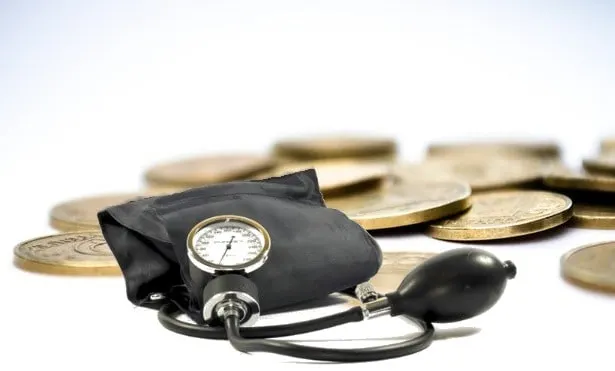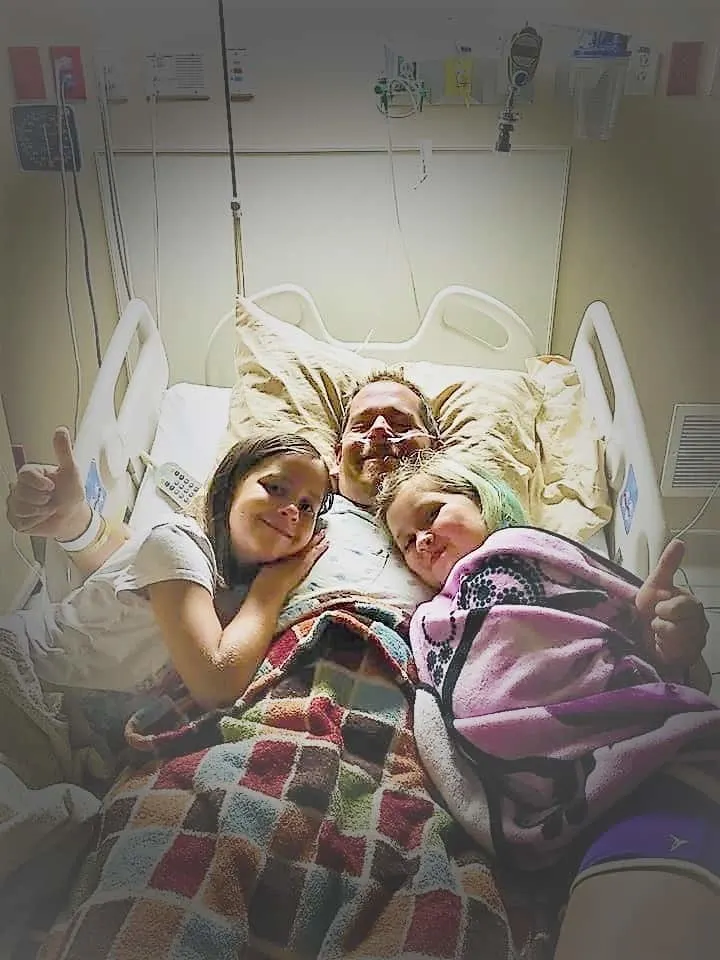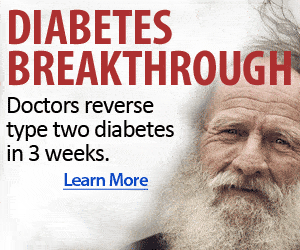I was just hospitalized for 5 days due to a ruptured appendix
It’s an experience I don’t recommend for anyone. Luckily for me, I have healthcare coverage and I received some great care from my facility.
The appendicitis came out of nowhere. I was told it’s completely unpreventable or not predictable. That it just “happens” to about 5% of the population.

In truth, as with much of life, I don’t think it just happens randomly for no reason.
But like a lot of things in the healthcare and medical worlds, when there isn’t an obvious answer, accepting that we simply don’t know isn’t an option.
But whether you call it physics (every action has an equal and opposite reaction) or karma or something else entirely, in my humble opinion,
EVERYTHING happens for a reason.
We just aren’t always in tune enough to see it in the moment
Being peaceful does not mean being passive. It means heightened awareness, harmony and being in tune with life.https://t.co/mGLDKamcrX pic.twitter.com/UkhjxHNpdA
— Middle Class Dad (@middleclassdad1) August 3, 2017
My appendix issue started out early on a Thursday morning
At first I thought it was indigestion or constipation. By 11am it was pretty painful. I called in to work. Then I slept for a while (I rarely nap). By 6pm I thought it was getting better. But that could have just been my own hopes. By 8pm I decided to go to the ER just in case.
My wife had guessed appendicitis much earlier in the day (she loves those rare occasions when she can hear me say “you were right”). I wasn’t convinced as my pain wasn’t localized to the lower right abdomen, though it was more on the right than the left.
By 10 or so, after a CT scan, the diagnosis was confirmed (although the scan did not depict a ruptured appendix). Then by 11am I was admitted and prepped for surgery.
Our country talks too much about the politics of healthcare and not enough about the “care”
I’m not a political blogger, nor am I about to become one. But in thinking about healthcare, it’s impossible to not think about the politics of the system. Terms like Obamacare, TrumpCare, Single Payer all come to mind. You may love one and hate the other.
But at the end of the day, all any of us really want is:
- Healthcare our families can afford to buy
- Coverage that allows us to choose the provider we want
- Healthcare that covers the treatments our family needs without financially destroying us in the process
Our insistence on a fighting stance of “my side is right and yours is wrong” could actually be what destroys our healthcare system.
We can’t really change what’s going on in the White House and all the funny Facebook memes in the world aren’t doing much except divide us as a people.
At the end of the day while we have the right to vote, the real way to vote is with our pocketbooks; arguably the one place where freedom is still truly ours.
Thus, it’s crucial that we spend our money wisely when it comes to healthcare

If I need something a little more benign than surgery I go through a few steps before just making an appointment.
- I check my insurance online to see what providers in my area are approved or in-network (your out of pocket on out-of-network could be much higher, so best to steer clear of that)
- Then I cross reference those providers closest to me with Yelp, Facebook or Google Reviews (trust me; there’s a lot of stinkers out there)
- Once I’ve selected the best I read a few of the lowest reviews (just to get a sense of how realistic the reviewer was and what I might expect for my care)
Following those steps ensures a much better likelihood of getting quality care that my insurance will cover the majority of.
If you don’t have insurance, don’t think you can afford it or are confused about how to buy it, check out a previous post of mine called How to Buy Affordable Healthcare for Your Family.
When you think of the quality of care you get from your healthcare providers, what do you think of?
If you’re anything like me, you think of:
- Wait times – how quickly can I see my provider?
- Quality of the provider – Am I seeing a RN, NP or Doctor?
- Knowledge of the provider – what do they know that I don’t
- Openness to questions & feedback – Can I question what they are telling me without feeling ridicule?
- Are they solely indoctrinated in western medicine – or do they recognize the value in so-called alternative treatments?
As a patient this past week I also noticed that I was heavily encouraged to partake in morphine and Oxycontin for pain. Now I was in pain, and I did say yes to each exactly 1 time.
The first was saying yes to morphine after being told it would be about 12 hours before they would do the surgery. The 2nd time was immediately following the surgery.
But in truth, I didn’t need those drugs nearly as often as they wanted me to take them.
After that, while I took the occasional Tylenol, I wanted to feel what my body was feeling so I knew where I needed to focus my intention and my breath.
After all, if you have no idea (thanks to medication) where you are hurting, you can’t possibly do anything to help your body and you just might do something to make it worse.
I blogged extensively about the concept and dangers of Overmedication earlier this year following the death of singer Chris Cornell. While his death was a suicide, his heavy pharmaceutical use was strongly considered a factor in his overall mental health and state of mind.
It’s well worth taking a moment and checking out that post.
Observations from a hospital bed: the good, the bad and the ugly

Once I was admitted the round the clock care started. While obviously it was great to have a team of people looking in on me round the clock to ensure my needs were met and that pre and post surgery I was not getting worse, I did have some observations.
For starters I had blood work done 3 times over the course of my stay. 2 of those times were about 3am.
Is drawing a patient’s blood at 3am going to produce results unattainable at a slightly more reasonable hour?
I was also asked if I could change rooms. It was midnight when they asked. Now, I get that someone probably got admitted late who needed a room and that they were probably in worse shape than me.
But when my bill comes, I know my out of pocket will be well into the thousands; maybe tens of thousands.
I should probably be allowed to sleep what little I can if I’m paying that much.
Hospital Bill Shocker: U.S. Releases Thousands Of Records Showing Huge, Wildly Differing Prices https://t.co/xhV50WCWVa
— King Henry (@riseofkinghenry) August 21, 2016
In the end, I recognized there was probably a patient worse off than me and I offered to switch. The nurse then said she’d have to check but it would “be in a little while”.
The only thing more irritating than being asked to change rooms at midnight is then being told to wait a while before the switch.
Lastly my surgeon had a habit of barging into the room each day between 6 and 7am. He would turn all the lights on and start talking immediately in a loud voice. Now I grew to like him and understand he didn’t have a bedside manner. But half the time he was done talking before I was even really awake.
I would be left wondering exactly what was happening or what I needed to do and he was long gone.
After all, if you’ve ever stayed in a hospital you know you don’t really get a lot of quality sleep.
Thus while I do normally wake up between 6 and 7am, that usually follows some pretty solid sleep.
Now I don’t want to paint my stay all with a negative brush. After all I’m healing nicely now thanks to them. And 99% of the nurses who cared for me were fantastic. They were friendly, conscientious and attentive and regularly ensured I had everything I needed to make my stay more comfortable.
I also want to point out my Surgeon told me to take probiotics to fight off the depleting effects of the antibiotics. I already knew that but it was the first time I’ve ever heard a medical professional encourage it. Call me impressed.
What needs to change to really have the “world’s greatest healthcare system”?

For starters, let’s talk about nutrition. None of the meals that were provided came with or were prepared with salt.
Sounds like a healthy option, right?
Well all the meals also came with a “salt-free seasoning”. It didn’t contain sodium, but corn syrup was pretty high on the list of ingredients. Call me crazy, but I’ll take a little bit of salt over corn syrup (liquid sugar) every day.
But don’t take my word for it.
In a recent study by the ‘s JAMA Network , they found that “individuals who consume higher amounts of added sugar tend to gain more weight and have a higher risk of obesity, type 2 diabetes, hypertension and cardiovascular disease”.
The vending machines in the hospital were full of Diet Coke and all kinds of things that would be a far cry from what many would think of as healthy.
But again, don’t take my word for it that diet sodas are bad. MD Anderson Cancer Center claims “People who drink diet sodas daily have a higher rate of obesity than those who don’t . . . artificial sweeteners may increase your risk for certain cancers.”
Need help getting off diet sodas? Check out the post 7 Steps to Replace Diet Soda with Something Healthy from my friends over at Healthy Ambition.
The water that was brought to me daily in a pitcher tasted moldy and nastier than the tap water at my house; so much so my wife went and bought a gallon of spring water to use instead.
And the nurses regularly offered me pudding or Jello. And just to be clear, 99% of the nurses I had during my stay were amazing. Friendly, efficient, conscientious and truly gave their heart into making my stay as comfortable as possible.
But while I can’t fault them for their kindness, as my friend Sensei Gene says “Nurses are generally speaking the unhealthiest people on the planet. …albeit with hearts the size of a planet and the patience of Job.”
Now, no offense to any nurses out there, but let’s face facts. Nursing school and Med school don’t focus on health and wellness. They don’t focus on nutrition. What they do focus on is how to identify and treat symptoms through a fairly narrow lens of treatment options.
No, if we want patients to recover quickly, lowering the costs of their stay, improving their quality of life and freeing up the beds faster, let’s get rid of the junk and really serve healthy food and water and encourage healthy movement.
Hospitals have been advised to get rid of junk food in vending machines. Is it time to ban vending machines? pic.twitter.com/NZ0YToE27E
— LBC (@LBC) July 26, 2015
I also think that if I’m paying thousands of dollars (both for the care as well as for the insurance) I should be treated like a customer in any other establishment.
The medication schedules and vital checks should be set up around what’s best for the patient, medically or comfort-wise; not just what’s most convenient for shift changes.
If we go to a restaurant and don’t like the food or service, guess what? We probably won’t go back.
With healthcare we unfortunately don’t always have that clear cut of a choice.
The one change that could truly revolutionize healthcare

I’ll end this post with one last point about our system and the one thing that would truly revolutionize our healthcare.
Imagine walking into a car dealership to buy a new car. Would you drive off just signing your name with no idea what the car was costing you?
What about that new TV you got for the family room. Would you waltz into Best Buy, sign a piece of paper and take it home having no idea if the price tag was $500 or $5,000?
OF COURSE YOU WOULDN’T DO EITHER OF THOSE THINGS!
So why should we be expected to do that with doctors, hospitals and other medical providers?
What if Congress simply passed a law saying that all medical providers had to provide treatment costs up front to all patients in the same way they require grocery stores to price mark items on their shelves?
And what if they also told insurance companies to let us choose which provider we wanted to go to. No more in and out of network rigmarole.
If you want to buy organic bananas you might know Whole Foods has them at .79 cents per pound. But what if Kroger sells them for .55 cents a pound? You’d probably buy them at Kroger. But maybe you love the food bars at Whole Foods and are willing to pay more to get everything you want in one place.
That’s called choice. It’s called freedom. It is competition, and the consumer is the one who wins.
Imagine being able to surf the web shopping around for the treatment or service you needed; comparing not only Yelp ratings, but also prices? Imagine the impact on the whole system.
What drives improvements to a business’s prices, services and customer service faster than competition?
If hospital A charges an out of pocket for an appendix removal of $5,000 and another charges $8,000, guess what? The one that charges more will start to get fewer customers unless they are providing better service.
But then I, as a customer, can TRULY make an INFORMED choice about my body and my healthcare. As it is now, I just have to grin and bear it.
I know. I’m naïve. It will never happen. But a man can dream. Not much else to do from a hospital bed.
If you like this post, please consider sharing on Facebook!
Photo credits (that aren’t mine or which require attribution):
The Bed – by Grégory Tonon is licensed under CC BY 2.0
9-12 March in DC-86 by Andrew Aliferis by is licensed under CC BY 2.0
- Sagittarius Man & Gemini Woman Love and Sex Compatibility - January 31, 2024
- Taurus Ascendant Rising Personality Traits in Men (Guide) - January 31, 2024
- How to Seduce and Attract a Sagittarius Man (Seduction Tips) - January 31, 2024

